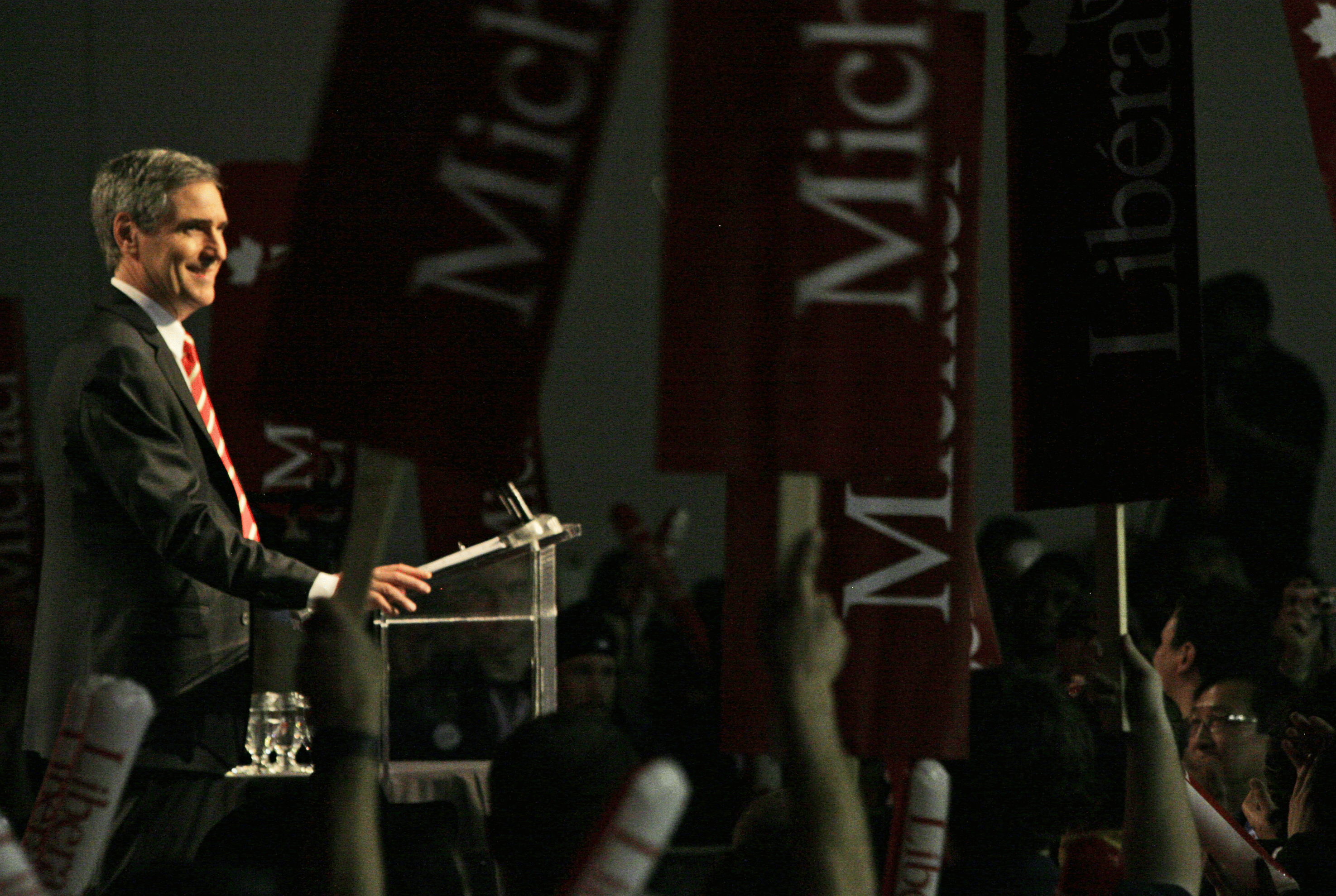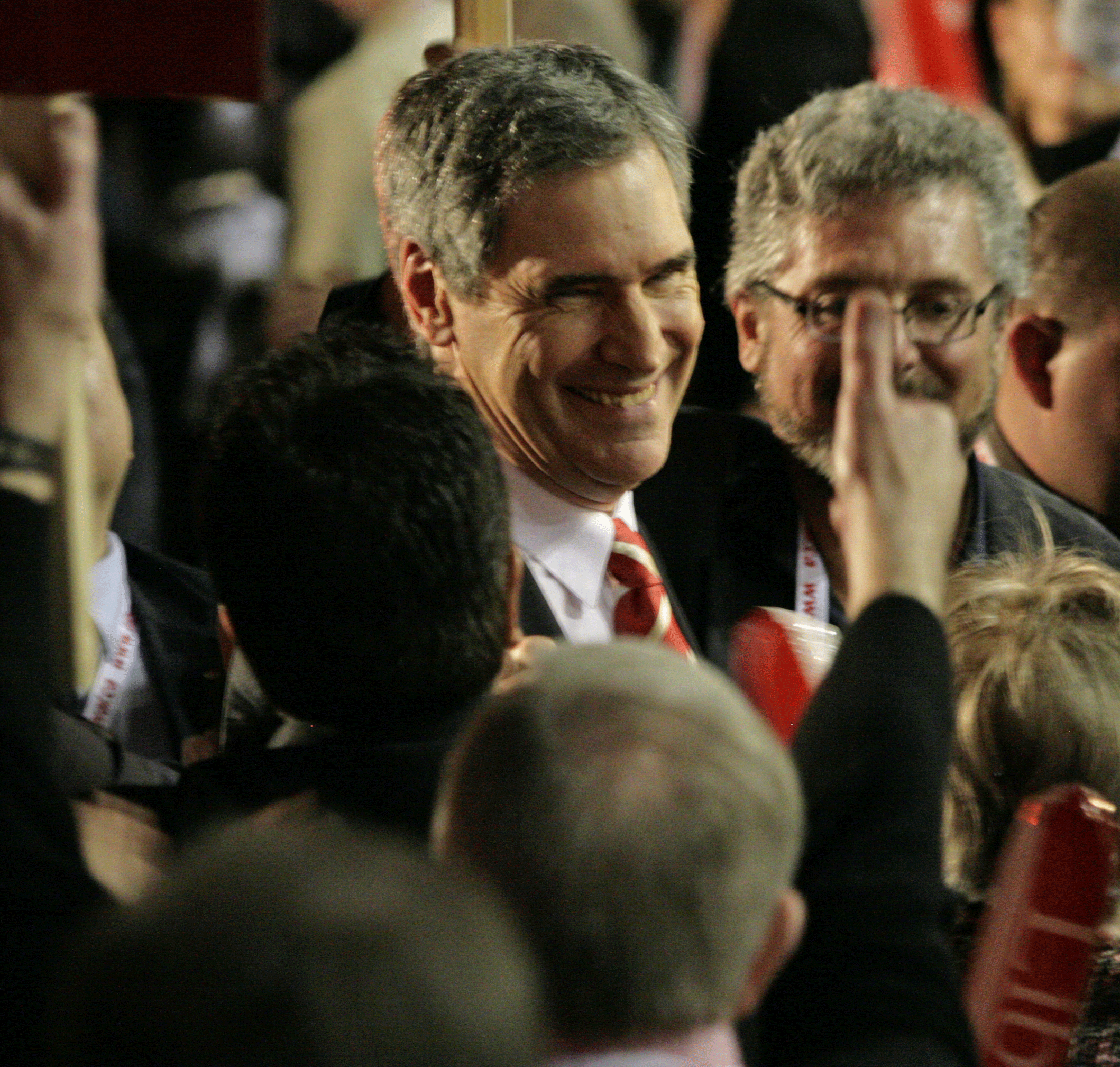Political Perspectives is produced by the students and faculty of Carleton University's School of Journalism and Communication, Canada's oldest journalism school.
28th
MAY 2009
CTV knuckles rapped by broadcast ethics panel for Dion interview
Posted by jsallot under All
Jeff Sallot
CTV News broke a promise to Stephane Dion when it broadcast the false starts by the then Liberal leader during a taped interview just days before the last election, the Canadian Broadcast Standards Council says.
The council’s ethics panel said the network had given a commitment to Dion to edit out the start of the interview, a segment in which Mr. Dion did not seem to fully grasp interviewer Steve Murphy’s awkwardly worded question.
The panel’s full decision can be found here.
28th
Were ministers duped in Harkat security case?
Posted by jsallot under All
Jeff Sallot
A string of Liberal and Conservative politicians should feel quesy today about their part in the troubling case of Mohamed Harkat, an Algerian man Canadian intelligence agencies want deported as an alleged security risk.
Two former Liberal ministers – Wayne Easter and Denis Coderre – and two ministers in the current Conservative government – Diane Finley and Stockwell Day – signed deportation warrants alleging Harkat is a threat to Canadian security.
Harkat’s supporters say that these would in effect become death warrants if the man is ever forced to return to Algeria. The Algerian regime deals harshly with suspected security threats.
But it now seems that the case against Harkat may have been cooked up, and the politicians fell for it. Read more…
27th
MAY 2009
Why?
Posted by ealboim under All
Elly Alboim
Two days into the $50 billion dollar deficit and I still don’t understand why. There are actually a few whys I don’t understand.
Why was the forecasting so far off?
Why has the deficit risen so high, so quickly?
And why are we getting a new deficit projection not even two months into the new fiscal year?
I was involved in ten full budget cycles while consulting at Finance Canada. I learned a lot about how the data flows in, how projections are made, what considerations come to bear in public reporting, and when in the cycle adequate certainty develops.
No part of what’s going on now makes much sense.
26th
MAY 2009
Some pension suggestions
Posted by cwaddell under All, Media Commentary, Political Strategy
Christopher Waddell
Further to Elly’s interesting post about pensions, some have been thinking about this for quite a while. Here’s what then Governor of the Bank of Canada David Dodge suggested in a speech in Montreal in November 2005 needed to be done to address some of the concerns Elly quite correctly noted are even more important issues today.
“If defined-benefit plans are to survive, grow, and provide a source of funding for long-term, riskier assets, it is important that Canadian policy-makers consider taking steps to rebalance the incentives for sponsors to operate defined-benefit plans. Let me mention a few of the things that could be done.
21st
MAY 2009
PMs redux: Chretien and Mulroney still make news
Posted by jsallot under All, Media Commentary
Jeff Sallot
The private business affairs of two colourful former prime ministers continue to play out publicly, providing fresh material for journalists.
So, thank you Brian Mulroney and Jean Chretien.
The Mulroney case, involving cash payments from a German lobbyist for arms dealers, has been unfolding at a commission of inquiry, making headlines for many days.
The next chapter in the Chretien story opens at the Supreme Court of Canada this month.
Mr. Mulroney threw The Globe and Mail, the paper that first broke the cash payments story, a curve the other day when he testified editors had suppressed a related story that would have placed him in a better light.
That’s not what Globe editor Ed Greenspon remembers. He says Mr. Mulroney tried to barter his way out of trouble, promising to provide information for another explosive story if the paper would spike the cash payments story.
15th
MAY 2009
Ghosts of prime ministers past
Posted by padams under All
Paul Adams
As I was watching Brian Mulroney’s testimony on TV this morning I received an email drawing my attention to this recent letter to the Globe and Mail from Doug Gibson, who edited the memoirs of both Brian Mulroney and Paul Martin:
Toronto — Lysiane Gagnon (An Atypical Politician With A Pen – April 27) is unfair to Brian Mulroney when she includes him among Canadian politicians whose books were “written by professionals hired for the job.”
There is nothing wrong with using a ghostwriter; some of my best friends are ghostwriters. But credit must go to those who, like Mr. Mulroney, spend years working hard to write their own book. What he did was so remarkable that, as his editor, I decided to illustrate the hardcover edition’s endpapers with pages from his handwritten manuscript.
It would appear that Ms. Gagnon missed that edition of his Memoirs.
Publisher emeritus, Douglas Gibson Books
Paul Adams just learned this morning that he is one of Doug Gibson’s best friends. He is also a member of Carleton’s journalism faculty.
14th
MAY 2009
What I missed
Posted by cwaddell under All, Media Commentary, Political Strategy
Christopher Waddell
Having been out of the country for a week where news about all the important political things happening in Canada is hard to find, here are a couple of observations.
Is there so little for the House of Commons to do that a committee really spent its time investigating the employer-employee relationship between an MP and caregivers hired to work for her family, including having the caregivers testify? I had thought Parliament couldn’t be more irrelevant than a committee investigating who should be the captain of Team Canada at the world hockey championships but I guess I was wrong. I’d hold off though for a while though on those stories about more and more people don’t vote and why it is so hard to persuade good people to give up interesting careers to enter politics to help improve public policy. The answer is a little too self-evident at the moment.
With the media staggered by a collapse in advertising due to the recession, why is so much media attention being devoted to the Conservatives launching an advertising campaign against Michael Ignatieff, including all the details of the campaign and the ads? Wouldn’t it be smarter and certainly more financially rewarding to force the Conservatives to buy ads?
Finally there is a very good review by Ron Graham of Ignatieff’s book True Patriot Love in the latest Literary Review of Canada. Although he has written widely on a range of subjects, to those in politics Graham is best known as the writer of Jean Chretien’s two books, Straight from the Heart and My Years as Prime Minister.
7th
MAY 2009
Liberal convention post-script
Posted by padams under All
Paul Adams
Something that occurred to me only after the Liberal convention ended was how there had been absolutely no discussion — at least within my earshot — of the realities of the five-party system that we have in Canada today.
Between 1993 and 2000, the Liberals were able to win majorities on the cheap because one of the main features of the fractured party system was a division on the right between the Progressive Conservatives and Reform/Alliance. In 1997, the Liberal majority was achieved with just 38.5% of the popular vote. Stephen Harper fell less than one percentage point short of that mark in 2008, but came more than 20 seats short of a majority.
After the two parties of the right united as the current Conservative Party, and the Greens appeared as a significant force (in terms of votes if not seats), the party arithmetic shifted. With the Conservatives now being able to claim something in the order of 30% of Canadians as their “core” support and the Bloc Québécois likely being able to claim a large share of Quebec seats for the foreseeable future, it is exceptionally difficult for the Liberal Party to win a majority, given that it must share the “progressive” vote with the NDP and the Greens.
Put another way, while the Liberals can reasonably hope to be competitive to form the next government, based on recent polls, they would have to catch an unusual wave to sweep them back to a majority. A mere swing of the political pendulum will not do. It would likely require a re-energization of our politics, bringing a significant number of the current mass of non-voters off the bench.
This could happen, of course, if the economy continues to sour, or if somehow Michael Ignatieff breaks through to a Trudeau-like or Obama-like level of popularity.
It is much more likely that it does not. If the Liberals win the next election — still a big if — it will probably be as a minority.
There certainly was no sign at the Liberal convention that this reality has sunk in.
There are some people who are hopeful that the Liberals will recognize their precarious situation, and that this will lead them to greater cooperation with the left — in particular the NDP. Former Liberal cabinet minister Lloyd Axworthy has argued for this. Former NDP apparatchik Robin Sears, who supported the coalition, is now arguing in Policy Options for electoral as well as parliamentary cooperation between the two parties.
This is by no means the only available avenue for Liberals in their current situation. Before the coalition was even on the radar, and when Stéphane Dion was still Liberal leader, I argued in the Globe and Mail that the from the point of view of their own self-interest, Liberals would be unwise to ignore soft-Conservative supporters who might be wooed their way, especially since NDP and Green supporters might be more attracted to their party if this made them a more genuine threat to topple the Conservatives. A little bit of that seems to be happening now.
All that having been said, all the parties need to start reckoning with the implications of the multi-party reality in which we now live. Liberals should be having a vigorous debate on this subject, just as New Democrats are. They should be considering how their parliamentary and electoral tactics should be adjusted to accomodate this new reality.
What has happened instead is that the Liberals learned a simple lesson from the failed coalition last fall and the huge fillip it gave the Tories in the polls: Don’t go there.
The truth is that the idea of Dion as prime minister was probably more poisonous to the coalition than the idea of parliamentary cooperation between parties, along with the Conservatives’ strenuous efforts to taint the idea with its association with separatism because of the support of the BQ.
But for now the Liberals are not doing any hard thinking about how to thrive in this 21st century environment. Mostly they hope that with a new leader, refilled coffers and a reinvigorated organization, they can resume their role as Canada’s “natural governing party” — the natural governing majority party, that is.
Not likely.
Paul Adams teaches journalism at Carleton and is researching a book on the Liberal Party of Canada.
2nd
MAY 2009
Ignatieff keynote pix
Posted by padams under All, Political Strategy
Recent Posts:
- 04 May 2011 Twitter and elections: ta...
- 04 May 2011 The Conservative fork in ...
- 03 May 2011 Ignatieff’s pre-mat...
- 03 May 2011 Final Observations
- 30 Apr 2011 Counting up the newspaper...
- 29 Apr 2011 Seat projections…do...
- 27 Apr 2011 Royals versus politicians...
- 27 Apr 2011 Outing a Tory dirty trick...
- 26 Apr 2011 Those advance polls
- 26 Apr 2011 The trouble with Liberals...
Categories:
- All (93)
- Election 2008 (117)
- Election 2008 Campaign strategy (46)
- Election 2008 Faculty links (12)
- Election 2008 Media commentary (51)
- Election 2008 Student articles (37)
- Election 2011 (53)
- Election 2011 Campaign strategy (45)
- Election 2011 Faculty links (38)
- Election 2011 Media commentary (36)
- Election 2011 Student articles (1)
- Media Commentary (48)
- Political Strategy (50)
- Post-election (3)
- Uncategorized (1)
Archives:
- May 2011
- April 2011
- March 2011
- March 2010
- February 2010
- January 2010
- December 2009
- November 2009
- October 2009
- September 2009
- July 2009
- June 2009
- May 2009
- April 2009
- October 2008
- September 2008





 RSS Feed
RSS Feed